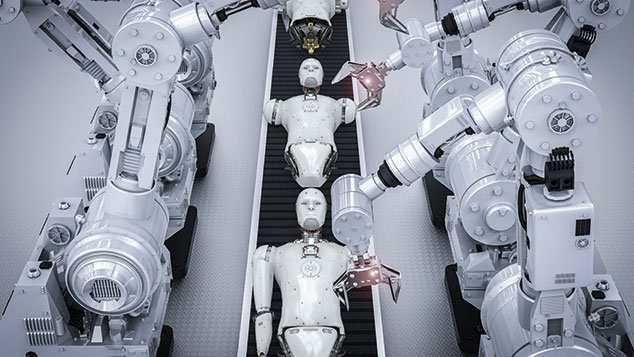
Super-smart robots are about to wipe out whole professions. Work is becoming less secure. We have to find ways to retrain people – or prepare them to do nothing. In most debates about how the economy is changing, it is taken as a given that technology is disrupting industries at an accelerating pace. Indeed, from taxing robots to banning apps such as Uber, there are lots of proposals to slow it down. But hold on. Maybe we are getting this the wrong way around.
A provocative paper from the Information Technology & Innovation Foundation says that we need the robots to destroy more jobs – not fewer. Why? Because it is only by replacing old ways of working with new ones that we will ever be able to increase productivity, and make society wealthier.
The paper looked at 150 years of data on the US job market to measure the “churn rate”, the number of jobs created in new industries against those lost in old ones, and then measured that for every one of the last 15 decades. The results were not what you might expect. The churn of jobs peaked in the 20 years between 1850 and 1870, at more than 50%.
With the creation of the railways, the beginnings of mass production, and the development of the first consumer industries, that really was a period of rapid technological change. The churn rate rose sharply again in the 1950s and 1960s, rising above 30%. Again, the post-war boom saw the rise of the mass ownership of cars, washing machines, fridges and televisions, making it another period when people had to switch from one way of working to another.
The latest decade has been tranquil by comparison. For 2000-10, the churn rate dropped to 12%, and for 2010-15 it was down to less than 10%. Looking at the absolute number of job losses again showed the last decade to be a quiet one: overall losses were running at only 70% of the levels of the first half of the 20th century. Whatever your trade it is less likely now that you will have to change it than at any time in the last 150 years.
This is probably just as true for this country. After all, we have record levels of employment, which is not what you’d expect for a country where technology was making us all redundant. Nor are we job-hopping, at least not as much as we used to. A report by the Resolution Foundation found the average person now spends 65 months in the same job compared with 50 months in 2000. Just as in America, jobs aren’t changing very much. At the bottom of the labour market, with zero-hours contracts, there may be a rise in insecurity. But it hasn’t impacted most people.
This might seem like a good thing. After all, most of us would welcome a secure job. We might be in favour of rapid change in theory, but on the whole most of us would prefer it happened to someone else. For the economy overall, however, it is a problem. Economic growth comes from people moving from lower- to higher-productivity industries. They switch from agriculture to working in a factory. They move from looking after horses to making cars.
White-collar work starts to replace blue-collar, and so on. Each time one way of working is replaced with a new one, involving more mechanisation and a higher level of skills, the economy grows a bit. It is not always a pleasant process, and it can be stressful for the people involved. But every one ends up richer as a result.
In the past decade that has not been happening in the way it did in the past. There have been lots of explanations as to why growth has been so sluggish in most of the developed world, from the legacy of the financial crash, to rising inequality, to competition from China. But one of the most compelling is that technology has slowed down. Sure, we have lots of new gadgets. But it has not transformed work in the way it used to. We need more robots.